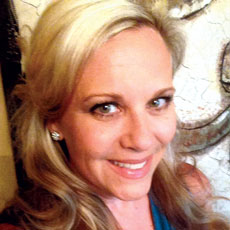
My alarm alerted at 8:00 a.m. CT on a Sunday in April. I had a flight to catch so I could be in Baltimore for a work meeting. I turned off my alarm and noticed I had missed calls, text messages from my mom and sister. My family lives in Georgia and their calls and texts had begun at 5:59 a.m.
Immediately fear set in, because your family doesn’t call you like that unless there is a serious problem.
My father had had a stroke.
The next six weeks were a blur yet etched permanently into my heart and mind. They were debilitating, enlightening, paralyzing and motivating. They shattered my figurative “Rose-Colored Glasses” as a healthcare provider.
I’ve worked in the healthcare field for nearly 25 years. I’ve practiced in just about every setting. Over time and with specialization your work focus can become narrowed. You can even convince yourself that healthcare has progressed to the point of thinking we are doing a remarkable job. But being on the other side with my father has taught me how far we have to go.
My father, 68, a retired Marine, was camping at a South Georgia hunting club when he had a massive hemorrhagic cerebellar stroke. He was found by a fellow camper who heard him screaming. Because of the location, the ambulance took 30 minutes to arrive and it took time to get to a very rural hospital. It took even more time to determine he had a bleed, and more time to transfer him to a larger hospital that could meet his needs.
Back in Shreveport, I called my sister, a nurse, and canceled my flight, then rescheduled to go to Atlanta. I arrived there and took off to South Georgia. Through this, family would call, text and update. When I was about an hour away a dear friend started asking how close I was. She met me in the parking lot.
The neurosurgeon had advised that my father’s condition was worsening and in less than 30 minutes he was going to have brain surgery. My father was now showing signs of brain stem stroke involvement, losing ability to move his left eye and was becoming less communicative. I made it to the room, was able to tell him I loved him, and I even was able to get my children on the phone to talk to him. My father recognized their voices and was able to mumble to them enough coherent words to give my children some comfort. And off he went to surgery.
My father survived, spending two weeks in the hospital more than an hour from home, one week in a swing-bed hospital 15 minutes from home, another week in inpatient rehab and another week and a half in the original hospital. He’s finally home with his dogs, sleeping in his own bed and sitting in his favorite chair. But he is far from himself.
My father was an avid outdoorsman. He liked to spend hours buying and selling things online and would draw up plans to build things. He taught his grandkids the best fishing holes and how to shoot a gun. ALL of this is on hold and we don’t know if he will be able to do any of it again.
I’ve learned a lot through this experience, namely that stress is paralyzing. As healthcare providers, we need to remember that patients and families’ lives have been turned upside down. We are so focused on “our agenda” that we can ignore how families feel about decision making, receiving and processing information. Empathy, compassion and truly genuinely acknowledging how stressful our resident and family situation is will go a long, long way.
Next, a reminder about assumptions. Strokes are complicated. And when it comes to communication a stroke can really mess things up. BUT what can really mess things up even more is “assuming.”
- Assuming your patient actually heard your question. My father lost most of his hearing as a result of the Vietnam War. He was supposed to wear hearing aids but hadn’t worn them that day. The fact he was hard of hearing was missed 100% of the time in every setting at every transition.
- Assuming your patient actually understood your question. It’s not just important to know your patient had a stroke. It’s important to know what kind of stroke and what part of the brain it occurred. This MUST be communicated to all clinical and non-clinical staff so that appropriate and compensatory communication can occur. My father now had expressive aphasia and was exhausted. Impatience combined with lack of information created opportunity after opportunity for misunderstandings, which affected the caregiver perceptions of my father and my father’s stress level.
- Assuming your patient even wants to answer your question. My father, frustrated by his current state, sometimes simply decided he didn’t want to answer their questions. Had I or my sister not been present, care would have been missed.
- Assuming your patient can’t communicate for themselves. This was hands down one of my father’s biggest irritations. He was not incompetent. When there was no attempt to communicate, he became agitated. With a little preparation, understanding his condition and limitations and patience my father could answer his own questions and direct his own care.
For example, he had told my mom that he never wanted to be on a ventilator again, having had open heart surgery before. He was able to tell us what he wanted after the brain surgery, including a request to be suctioned. This meant “bothering” nursing. One time our nurse was busy, so another staff member decided to intervene. He entered, did not introduce himself, launched into a lecture to all of us that we clearly did not understand the rules for suctioning and brain injury. At that point I kindly asked him to stop. I asked, “who are you, what are you and do you even know what we asked?” This took him aback a bit. He was an RN. He told us his name. We clarified we were knowledgeable and only wanted to satisfy our father’s request for suctioning his mouth, not deep suctioning. This was an “a ha” moment for this nurse. After that he was our favorite nurse but boy did it start out rocky!
To that end, don’t assume the patient or family know who you are, what you are and why you matter.
In the second part of this series, I’ll explore how honesty and documentation make a huge difference.




